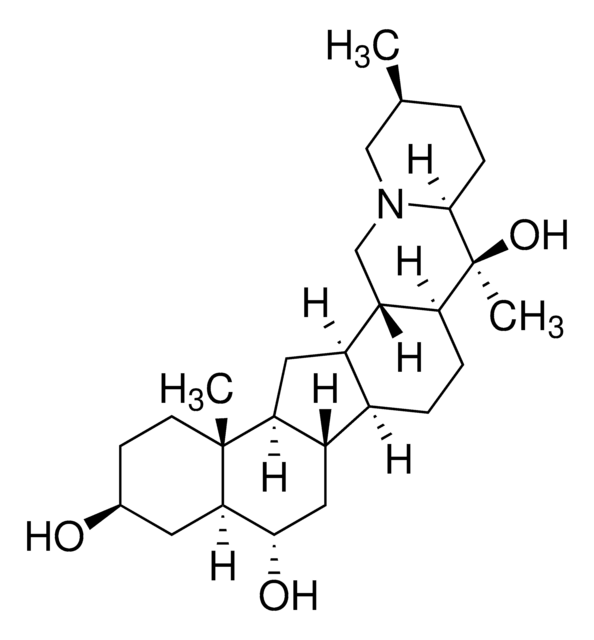565852
PTP Inhibitor XXXI, II-B08
The PTP Inhibitor XXXI, II-B08 controls the biological activity of PTP. This small molecule/inhibitor is primarily used for Phosphorylation & Dephosphorylation applications.
Synonym(s):
PTP Inhibitor XXXI, II-B08, CD45 Inhibitor V, FAP1 Inhibitor, LMWPTP Inhibitor, Lyp Inhibitor III, PTP1B Inhibitor IX, SHP1 Inhibitor IX, SHP2 Inhibitor VI, 3-(1-(3-(Biphenyl-4-ylamino)-3-oxopropyl)-1H-1,2,3-triazol-4-yl)-6-hydroxy-1-methyl-2-phenyl-1H-indole-5-carboxylic acid
About This Item
Recommended Products
Quality Level
Assay
≥98% (HPLC)
form
powder
potency
5.2 μM Ki
manufacturer/tradename
Calbiochem®
storage condition
OK to freeze
protect from light
color
yellow-white
solubility
DMSO: 100 mg/mL
shipped in
ambient
storage temp.
2-8°C
General description
Biochem/physiol Actions
SHP2
Other PTPs
Packaging
Warning
Reconstitution
Other Notes
Zhang, X., et al. 2010. J. Med. Chem.53, 2482.
Legal Information
Storage Class Code
11 - Combustible Solids
WGK
WGK 2
Flash Point(F)
Not applicable
Flash Point(C)
Not applicable
Certificates of Analysis (COA)
Search for Certificates of Analysis (COA) by entering the products Lot/Batch Number. Lot and Batch Numbers can be found on a product’s label following the words ‘Lot’ or ‘Batch’.
Already Own This Product?
Find documentation for the products that you have recently purchased in the Document Library.
Our team of scientists has experience in all areas of research including Life Science, Material Science, Chemical Synthesis, Chromatography, Analytical and many others.
Contact Technical Service







